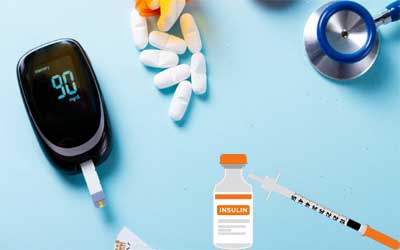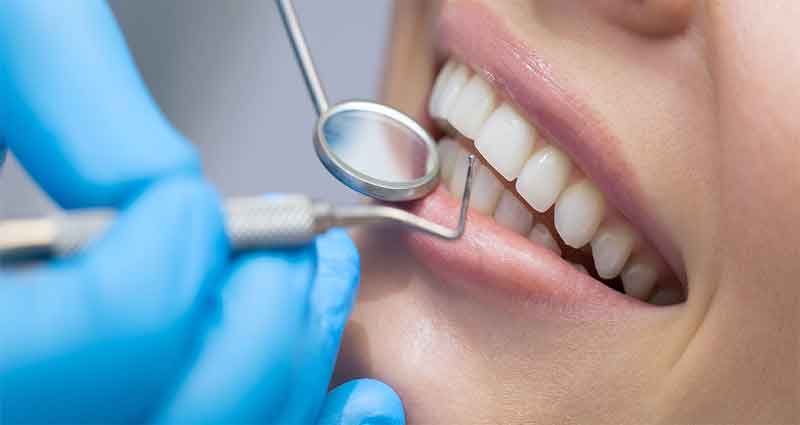
Bad breath, medically called halitosis, can result from poor dental health habits and may be a sign of other health problems. Bad breath can also be made worse by the types of foods you eat and other unhealthy lifestyle habits.
In the mouth of a human being, there are about four hundred species of different types of bacteria. Among these, about 14 are anaerobic (thrive in an oxygen-free environment) and the bad odours are mostly produced by these anaerobes, by producing sulphide gases. These anaerobes are normally present in the mouth and they also have certain beneficial effects. However, they create bad breath when they are present in large numbers, much more than normal.
Anyone can suffer from bad breath. It is estimated that 1 in 4 people have bad breath on a regular basis. However, very few people are willing to discuss it. Detection of halitosis is really difficult as it is not possible for an individual to smell his/her own breath. This problem often creates depressing and embarrassing moments for the afflicted individuals and also for the people around them. Bad breath problems can be eliminated more or less permanently by identifying and controlling/eliminating the root cause for the problem, rather than adopting temporary measures like the use of mouthwashes, mouth fresheners, etc.
Causes for halitosis (bad breath) can be intra-oral and extra-oral.
Intraoral causes:
Food: Some categories of food are found to increase the degree of bad breath problems by causing the increased production of sulphide and ketones by anaerobic bacteria. They are: - Some dense protein foods like dairy products, fish, meat, etc.
- Drying agents like alcohol, alcohol-based mouthwashes, etc.
- Acids and sugars like juices of orange, pineapple, tomato, grapes, etc.
- Onions and garlic
- coffee is the stimulator of anaerobic bacterial growth.
- Crash diets: Low-carbohydrate eating produces halitosis due to the breakdown of fats-producing chemicals called ketones.
- Tobacco: Tobacco products cause their own types of mouth odor. Additionally, they increase the chances of gum disease which can also cause bad breath.
- Dry mouth: This condition is often a key part of halitosis. Saliva naturally cleans the mouth. If the mouth is naturally dry or dry due to a specific disease, such as xerostomia, odors can build up. Dry mouth may be caused by certain medicines (Most like antidepressants, antacids, antihypertensive, etc), a salivary gland disorder, or by always breathing through the mouth instead of the nose.
- Drugs: Medications that reduce saliva, drugs that can produce odors as they breakdown and release chemicals in the breath, vitamin supplements in large doses can be prone to bad breath. or sinuses can cause halitosis.
- Dentures: Most removable denture wearers whether it be complete or partial, are found to have bad breath. Meticulous denture hygiene measures help control this problem to a certain extent.
- Tooth conditions: Drifted or extruded teeth. Impacted teeth (esp. The lower impacted third molar allowing food entrapment in the area), Tooth decay, etc.
- Gum diseases: gum inflammatios like gingivitis and periodontitis.
- Oral diseases: Oral tumors, oral cancer, Mouth ulcers
- Food entrapment in the mouth – between drifted teeth, ill-fitting bridgework, damaged fillings, etc.
- Poor oral health care: Without correct and regular brushing and flossing, and routine dental exams
extra-oral causes are
- Diabetics: Diabetes raises your glucose levels, encouraging bacteria growth, inflammation, and infection which leads to bad breath. In severe diabetic conditions, ketones are produced by Ketoacidosis lead to bad breath.
- Bowel obstruction: Breath can smell like feces if there has been a prolonged period of vomiting, especially if a bowel obstruction is present.
- Bronchiectasis: This is a long-term condition in which airways become wider than normal, allowing for a build-up of mucus that leads to bad breath.
- Aspiration pneumonia: A swelling or infection in the lungs or airways due to inhaling vomit, saliva, food, or liquids.
- Ear, nose, throat, and lung problems like rhinitis, sinusitis, pharyngitis, tonsillitis, otitis, asthma, bronchitis, and infections or inflammation in the nose, throat, or sinuses can cause halitosis.
- Gastro-Intestinal Conditions such as – Acid Peptic Disease (APD), Gastro-esophageal acid reflux disease (GERD), Constipation, Liver diseases, etc.
Treatment for bad breath
Proper brushing of teeth and tongue cleaning at least twice a day and flossing will help us maintain a hygienic mouth and this, in turn, will help reduce the bad breath problem to a very great degree. Dental specialists at TheSmileCentre routinely recommend to our patients to use a tongue scraper as part of the daily routine of dental hygiene which includes both flossing and brushing. This will definitely reduce bad breath. It is a proven scientific fact that regular tongue cleaning (twice a day, after teeth brushing) will reduce the mouth odour by about 75 percent.
People with temporary dentures are advised to remove their dentures during night hours and they can use it in the morning only after brushing it properly.
Drinking plenty of water can help prevent bad breath to a great degree by preventing the growth and movement of bacteria in the mouth. Chewing sugar-free gums and the use of mouthwashes help to reduce foul smell. However, it is to be noted that these agents will give only short-term benefits. Most of them work only for a few hours and after their effect is gone, bad breath recurs, often with double intensity. One of the major ingredients of mouth fresheners is alcohol, which in turn can make the mouth dry and initiate the speedy growth of bacteria.
Routine dental check-ups are necessary as it helps in the detection of oral problems well in advance. Regular check-ups will offer us opportunities to identify and treat dental plaque, bacterial infections, etc.


